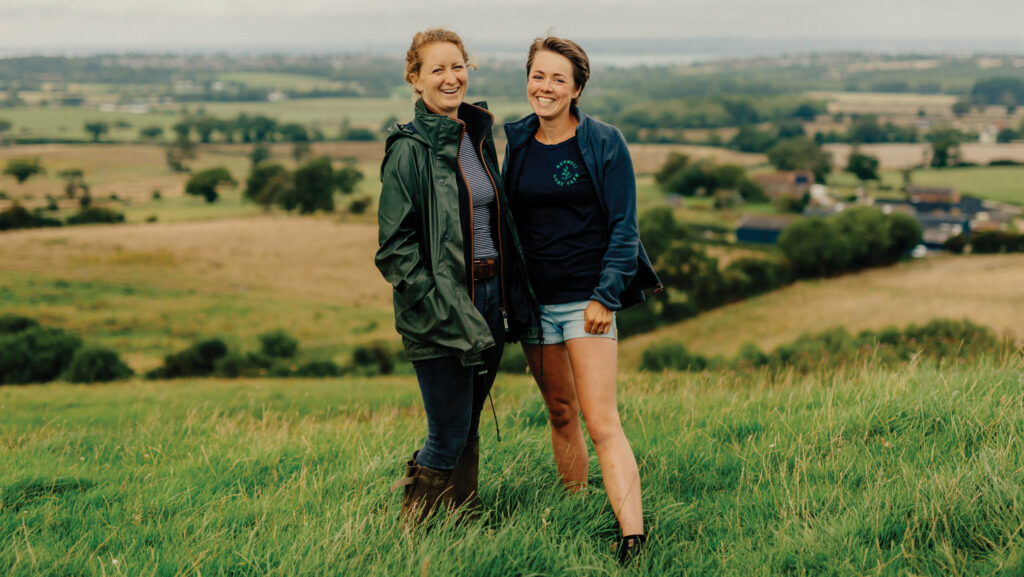[ad_1]
A series of upcoming workshops aimed at enhancing communication among beef and sheep farmers is set to kick off soon.
These workshops will be led by Elaine Froese, a Canadian family farm coach, who aims to equip farmers with essential skills to address challenging topics and shape the future of their agricultural businesses.
“Procrastination and avoidance of conflict are detrimental to the agricultural industry,” Elaine remarks, emphasizing the importance of open dialogue. She hails from Manitoba and understands the complexities faced by farming families.
Elaine focuses on tackling issues directly by empowering farmers to discuss “the elephant in the room” — those uncomfortable topics that everyone knows exist but avoids addressing.
As she states, farmers need to “grab the bull by the horns” and express their genuine needs regarding their farms.
Part of AHDB’s Roots to Resilience program, her workshops (check “Discuss the undiscussabull™️ dates”) are tailored to help farmers enhance their communication prowess.
Elaine believes that by fostering a positive workplace culture and enhancing interpersonal relationships, farmers can lead more fulfilling lives. “Are you appreciating each other? Is your workplace enjoyable?” she questions.
Additionally, the evolving nature of agriculture demands that farmers “focus intently on profitability,” she explains. “Combining resources and skill sets will reveal new opportunities on your farm.”
Discuss the undiscussabull™️ workshop dates
- Carlisle: Monday, 21 October
- Harrogate: Wednesday, 23 October
- Telford: Friday, 25 October
- Huntington: Monday, 28 October
- Exeter: Wednesday, 30 October
For course information and venue details, visit ahdb.org.uk/roots-to-resilience.
Insights from the Farm Kitchen
Elaine Froese’s journey began with a degree in home economics, followed by a role in Manitoba Agriculture where she facilitated difficult conversations for farming families.
After obtaining training in coaching, conflict resolution, and mediation, she launched the Farm Family Harmony podcast.
“Working with families around kitchen tables highlighted that they lacked a solid foundation in constructive conflict management and effective communication,” she notes.
Elaine stresses the importance of expressing emotions, fostering solutions, and understanding each other’s perspectives as vital communication skills. “Conflict can actually be beneficial as it clarifies expectations,” she adds.
“The key is to focus on positive interactions rather than negative behaviors, like striving to ‘win’ or sidestepping conflict.”
When farmers face challenges, Elaine points out that resorting to isolation instead of constructive dialogue doesn’t contribute to finding solutions. “Address the problem without attacking the individual,” she advises.
Elaine cites research from Dr. David Kohl, showing that farms with regular meetings tend to be 21% more profitable. Furthermore, studies from psychologist Dr. Nikki Gerrard indicate that families with strong communication and community ties tend to thrive.
Tools for Effective Communication
The one-day workshops will address succession planning, including issues of fairness, and provide attendees the chance to send questions anonymously to Elaine via text during the sessions.
Questions will be answered openly throughout the day in a safe environment. Furthermore, participants will complete a pre-registration assessment called a conflict dynamic profile to heighten their awareness of positive conflict behaviors.
“We’ll also offer 45-minute private coaching sessions,” she reveals, stating that every participant will take home a comprehensive 56-page implementation guide filled with tools.
Case Study: Francesca Cooper and Holly Fallick
Farm Overview: Nunwell Estate

Francesca Cooper and Holly Fallick © Peter Flude
- 162 hectares under a share-farming agreement with Nunwell Estate, Isle of Wight
- Expanding to an additional 81 hectares soon
- 100 head of cattle, including 35 suckler cows
- 100 growing pigs and eight sows
- 300 laying hens
- Direct consumer sales
Childhood friends Francesca Cooper and Holly Fallick made the leap into farming after leaving careers in land agency and human nutrition, respectively. They formed a share-farming agreement with Robert Oglander at Nunwell Estate three years ago.
“Communication is essential in our collaboration,” Francesca states, reflecting on their attendance at AHDB’s Roots to Resilience program last December. “Being friends has its advantages, but we must actively communicate rather than assume understanding.”
They originally launched with cattle, pigs, and hens across a 49-hectare area, later creating a five-year plan that allowed space for organic growth.
As their farming operation rapidly expands, Francesca acknowledges that both she and Holly are acutely aware of the accompanying stress. “We need to develop our communication strategy as we grow,” she notes, highlighting the unique challenges of partnering with a close friend.
“Effective communication means investing time in deeper conversations about our shared goals and aspirations,” she adds. “We often found ourselves incorrectly assuming we were aligned simply because we were in constant contact.”
Finding Resolution
Francesca and Holly aim to establish regular, formal meetings despite the difficulties involved. “There’s a concern that they may lead to conflict, but with so much dependent on our collaboration, we recognize their importance,” Francesca explains.
“We’ve realized that agreeing on everything isn’t necessary for success; it’s about finding a way to move forward together.”
They plan to rely on a business coach for enhanced communication strategies: “It requires more than just assumption to ensure effective dialogue,” Francesca concludes.
SOURCE

Maria Sanchez completed her Bachelor’s degree in Plant Sciences from the University of California, Davis, in the USA. Her studies focused on plant genetics and biotechnology, with an emphasis on developing disease-resistant crop varieties. Maria has contributed to several research projects aimed at improving crop resilience to climate change and is now pursuing her Master’s degree in Plant Breeding.


